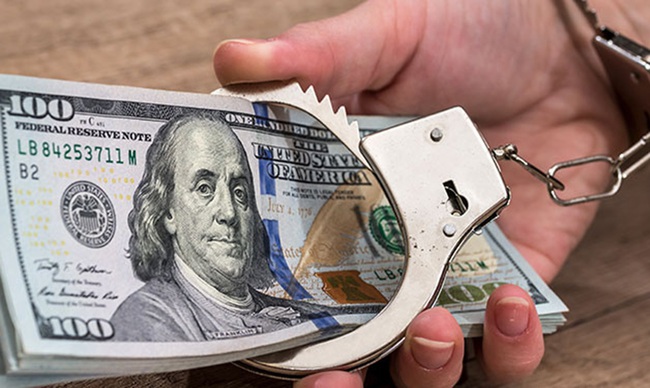Table of Contents
Unsecured loans, with their streamlined application process and flexible terms, are a popular choice for many borrowers. However, the lack of collateral associated with these loans can lead to significant legal complications and financial hardships if repayment becomes impossible. Understanding the legal framework surrounding unsecured loan defaults is crucial for both lenders and borrowers to navigate potential challenges effectively. This article from NT International Law Firm aims to help you with that.

Unsecured Loan Default: Navigating Legal Ramifications and Repercussions
Legal Basis for Loan Recovery:
In Vietnam, the 2015 Civil Code governs loan agreements, including unsecured loans. Key articles like 463, 464, and 465 define the rights and obligations of both parties in such agreements. These articles stipulate:
- Property Loan Contract: This is the legal document outlining the terms of the loan, including the amount borrowed, repayment schedule, and interest rate. It serves as the primary basis for debt recovery in case of default.
- Lender’s Obligations: The lender must provide the loan amount as agreed upon and act in good faith throughout the loan process.
- Borrower’s Obligations: The borrower is legally bound to repay the loan principal and interest in accordance with the loan agreement. Failure to do so constitutes a breach of contract and can lead to legal consequences.
Legal Recourse for Unsecured Loan Defaults:
When an unsecured loan borrower defaults, the lender has several legal options for debt recovery:
- Negotiation and Restructuring: Lenders often prefer to work with borrowers to find a mutually agreeable solution, such as restructuring the loan or negotiating a repayment plan.
- Debt Sale: The lender can sell the debt to a third-party debt collection agency. While this can be quicker, it often results in lower recovery rates for the original lender.
- Litigation: If negotiations fail, the lender can file a lawsuit against the borrower in a civil court. The court will then determine the amount owed and issue a judgment, which can be enforced through various means, such as wage garnishment or asset seizure.

Criminal Implications of Default
Criminal Implications of Default:
In extreme cases, borrowers who intentionally avoid or evade debt repayment may face criminal charges for “appropriation of property” under Article 174 of the 2015 Penal Code. This crime carries potential imprisonment and fines depending on the severity of the offense.

Timeframe for Legal Action
Timeframe for Legal Action:
According to Article 429 of the Civil Code, the statute of limitations for filing a lawsuit to recover debt is 3 years from the date the lender becomes aware of the default. This timeframe allows for attempts at negotiation and alternative solutions before resorting to legal action.
Consequences for Borrowers:
Defaulting on an unsecured loan can have significant negative consequences for borrowers, including:
- Damaged Credit Score: This can significantly impact future borrowing ability and lead to higher interest rates on future loans.
- Legal Proceedings: Lawsuits and potential judgments can be stressful and costly to defend.
- Wage Garnishment and Asset Seizure: Court orders may allow the lender to seize the borrower’s wages or bank accounts, or even sell their assets to satisfy the debt.
- Criminal Charges: In severe cases, borrowers may face criminal prosecution.

Seeking Professional Help
Seeking Professional Help:
Both lenders and borrowers facing unsecured loan default situations should consider seeking professional legal advice. A qualified lawyer can help navigate the legal complexities, protect rights and interests, and find the most favorable outcome for each party.
Conclusion:
Unsecured loan defaults can pose significant legal and financial challenges for both lenders and borrowers. Understanding the legal framework, potential consequences, and available options is crucial for making informed decisions and navigating these situations effectively. By seeking professional legal counsel and working towards mutually agreeable solutions, both parties can minimize the negative impact of default and work towards financial recovery.
NT International Law Firm is Here to Help
NT International Law Firm has addressed the question of whether you can be sued if you are unable to repay your unsecured loans. If you have any further questions or concerns regarding bankruptcy law, please contact our law firm immediately for expert legal advice.
If you require any legal assistance, please feel free to reach out to us via phone at 090 252 4567 or through email: info@ntpartnerlawfirm.com. At NT INTERNATIONAL LAW FIRM, our team is committed to offering you prompt and personalized advice.
You also might be interested in:
“The article’s content refers to the regulations that were applicable at the time of its creation and is intended solely for reference purposes. To obtain accurate information, it is advisable to seek the guidance of a consulting lawyer.”

LEGAL CONSULTING SERVICES
090.252.4567NT INTERNATIONAL LAW FIRM
- Email: info@ntpartnerlawfirm.com – luatsu.toannguyen@gmail.com
- Phone: 090 252 4567
- Address: B23 Nam Long Residential Area, Phu Thuan Ward, District 7, Ho Chi Minh City, Vietnam
